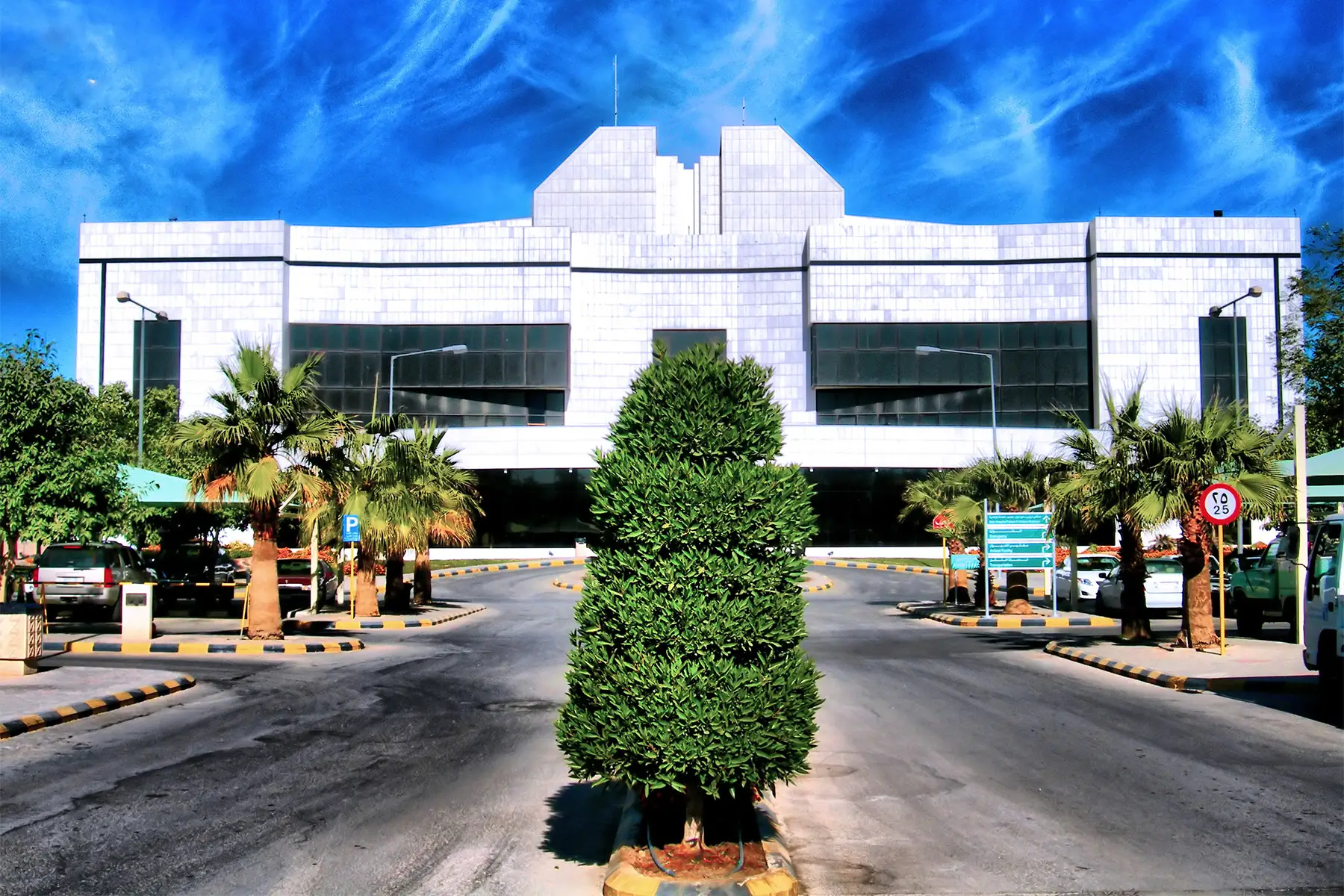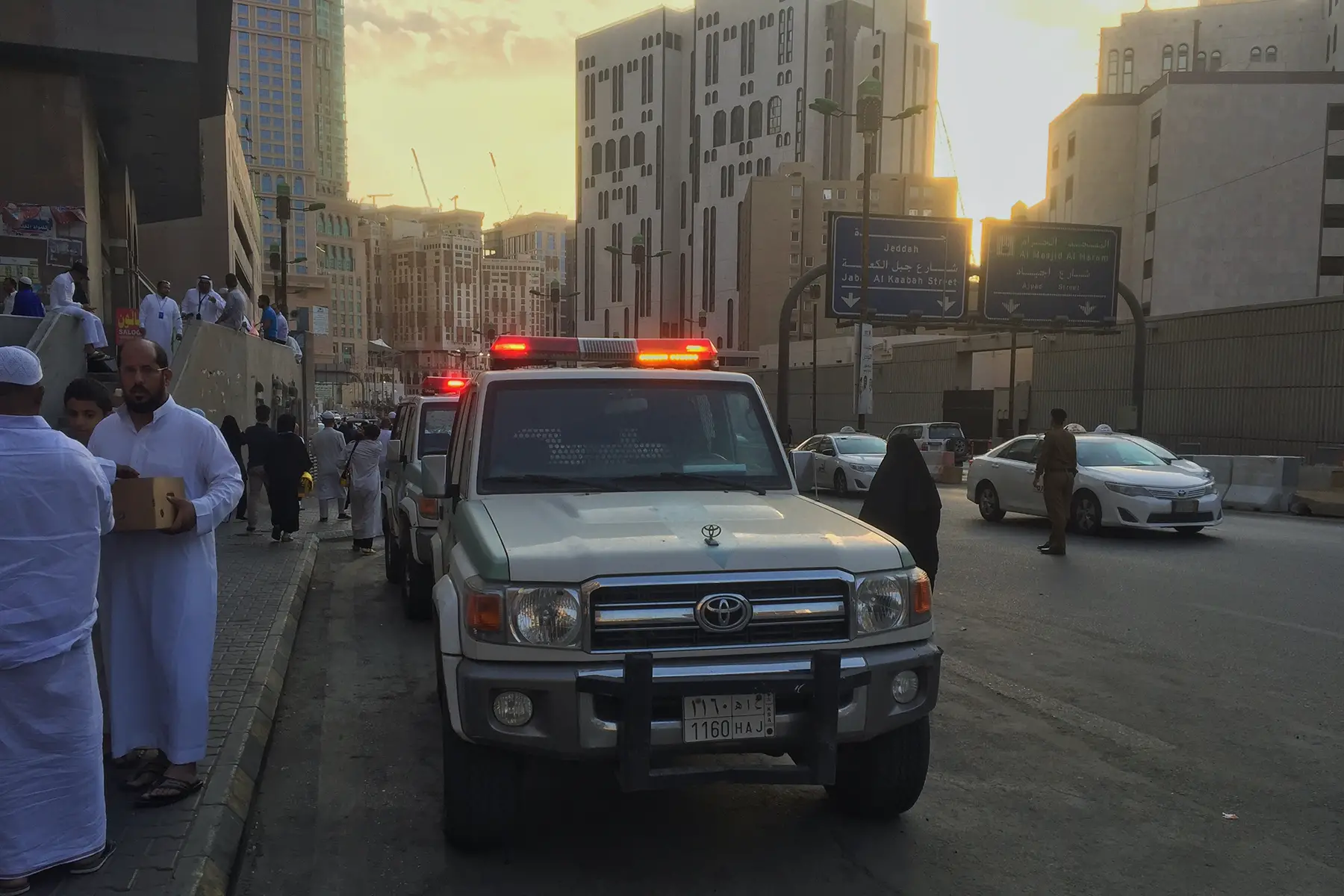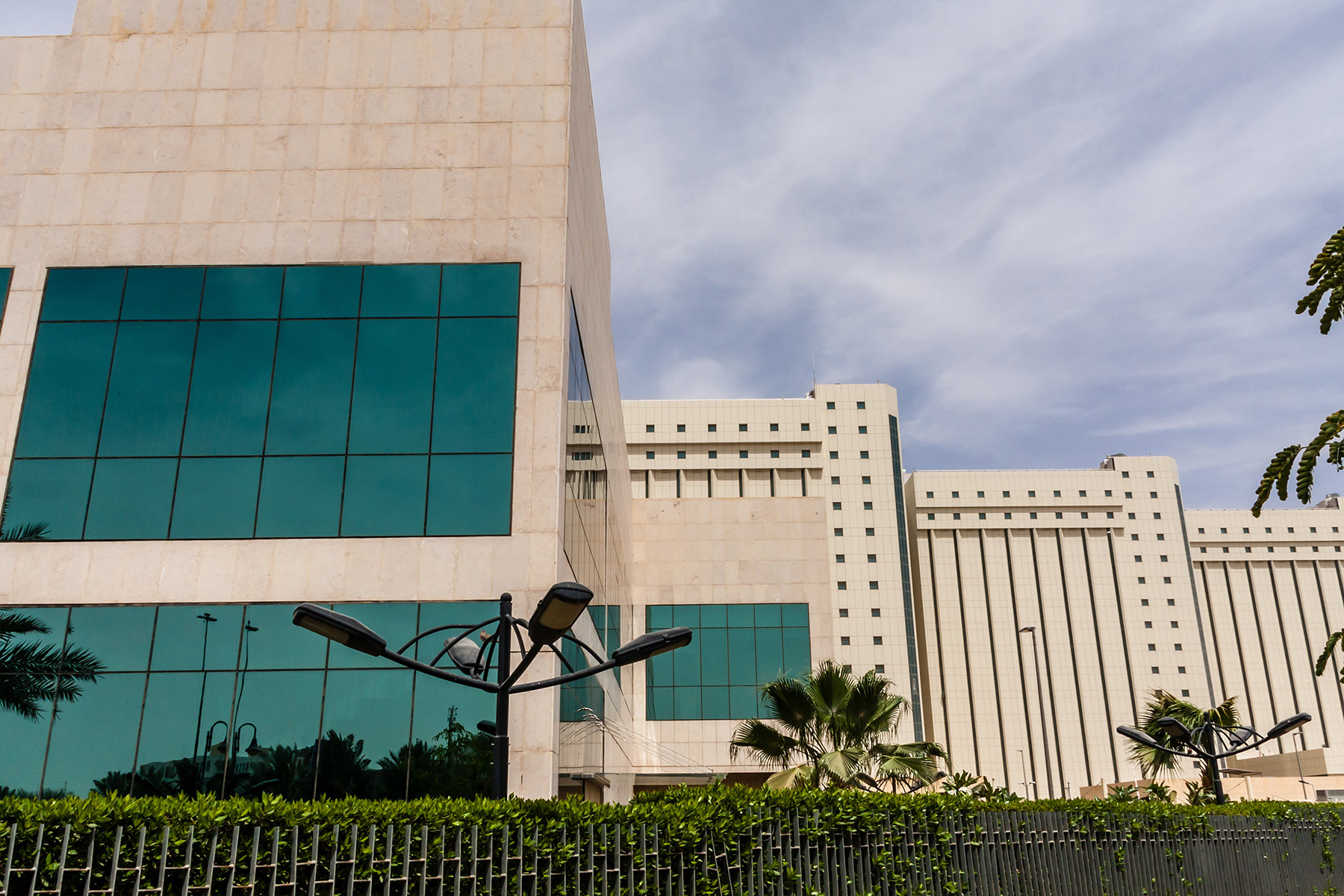As a parent, moving to another country can be daunting. Between language barriers and schools and doctors, it can easily feel overwhelming. Fortunately, for expats considering moving to Saudi Arabia, your child’s health will be well taken care of. This is because children’s healthcare in Saudi Arabia is considered to be of a high standard.
In this article, we review everything you need to know about accessing healthcare to finding a specialist and more, including:
APRIL International
Looking for expat-friendly health insurance in Saudi Arabia? APRIL International has a long history of providing health coverage tailored to the unique needs of the expat lifestyle, ensuring peace of mind for you and your family. Whether you're relocating to Saudi Arabia or simply staying short-term, APRIL International has the right policy for you.
Children’s healthcare in Saudi Arabia
The Saudi government has invested heavily in its healthcare infrastructure in recent years. As such, its healthcare system is on par with many Western countries. That said, it is also facing challenges due to the fact that many children in the Kingdom are overweight or obese. Indeed, nearly 20% of boys aged 5 and 9 and 24% aged 10 to 14 years are obese. Moreover, the prevalence of obesity among girls is 40% between the ages of 5 and 9, and 41% between the ages of 10 and 14.

Children’s healthcare in Saudi Arabia remains in the hands of parents and what their health insurance covers as out-of-pocket fees can be expensive. It is also important to read the fine print and see whether your insurance requires you to register with a particular clinic.
Once you have settled into your new life in Saudi Arabia, it is wise to find a pediatrician who accepts your insurance and who you trust. Ideally, your child can keep seeing them for as long as you are living in the Kingdom.
How to access healthcare for your children
Children are considered to be dependents in Saudi Arabia. Therefore, their healthcare is covered by their parent’s health insurance policy which is arranged by their employer. Because all expats are expected to have employer-funded insurance, there are no schemes that allow low-income expats to access more affordable healthcare in the Kingdom.
While public hospitals are accessible to expats, they must pay before receiving any treatment and services. For this reason, it is essential that they have health insurance. Notably, costs will vary depending on the services that are provided and how much their insurance covers.
Public healthcare for children
Expat children are not eligible for public health insurance, however, they can access government clinics and hospitals. Regardless, many expats prefer private sector healthcare as there are often shorter waiting times and less bureaucracy.

That said, some parents will choose to take their children to see doctors in larger public hospitals, such as King Fahad National Center for Children’s Cancer, for more specialized care. If you find yourself needing to take your child to a public hospital, be sure to bring your (and your child’s) health insurance card, passport, and Iqama (ID document).
Private healthcare for children
Most expat children in Saudi Arabia have private health insurance as dependents on their parents’ insurance policy. Your policy will clarify where you can seek healthcare and what is considered to be outside-of-network. It should also specify how much your policy covers for pediatric visits and treatments, and how much you are responsible for.
There are currently 34 health insurance companies operating in the Kingdom, including APRIL International.
Naturally, it is important to consider what health coverage you actually need. For instance, is dental work part of the plan? What maternity costs are covered? And which hospitals and clinics can you visit? Also, keep in mind that insurance policies can vary substantially in price. This means that some of the more affordable ones might not be accepted at the larger, more popular, or reputable hospitals and clinics.
Taking your child to the pediatrician
Children usually see pediatricians until the age of 18 in Saudi Arabia. However, considering there are only 250 pediatricians in a country with a population of almost 35 million, they are in short supply. Depending on their specialty, pediatricians may work out of an office, in a clinic, or in a hospital. They handle everything for children, from preventative care and everyday illnesses to highly specialized disorders.

Private healthcare clinics in Saudi Arabia often offer shorter waiting times and a larger number of English-speaking staff. However, they don’t always offer a higher quality of services than public ones, as this really depends on location. Therefore, when searching for a pediatrician, it is best to go with personal recommendations or ask your child’s school. Alternatively, if you have a family doctor you trust, you can always ask them for recommendations. You can also search for pediatricians by insurance, specialty, and location on DoctorUna.
Routine childhood health check-ups
Children’s healthcare in Saudi Arabia includes routine well-child check-ups. These are similar to how they are in much of the world. Your child will see the doctor on a regular basis for the first nine months, and then a few times a year after this. Once they pass the toddler stage, they can expect to see the doctor once a year.
During these visits, your child will get their vaccinations and be screened to make sure they are developing on schedule and appropriately. These visits also offer parents the chance to ask any questions and discuss any health concerns.
Vaccinations for children in Saudi Arabia
Most vaccines that are common in the Western world are also widely available in Saudi Arabia. These include diphtheria, tetanus, polio, measles, meningitis, hepatitis A and B, varicella, and more. You can read more about this in our article on vaccinations in Saudi Arabia. Of course, you can also discuss vaccine schedules and any other concerns with your pediatrician.
Taking your child to see a doctor or specialist
Having a consistent relationship with a family doctor is a good idea because that office or clinic can centralize your child’s care. You will need to speak to the specific clinic or office to find out more about the process of registering. When you do register, you will need to present your child’s health insurance card and passport or ID; in addition to any vital records or vaccination history.
While it is a good idea to speak to your family doctor first about any concerns, studies of ERs in Saudi Arabia show that parents tend to prefer emergency department visits; even for non-urgent, non-life-threatening incidents.
Although there are many pediatric specialists in Saudi Arabia, of which some are expats themselves, many international families in search of highly specialized care prefer to seek it in their own, or other, countries.
Children’s hospitals in Saudi Arabia
There are three kinds of hospitals in Saudi Arabia: public ones, private ones, and ones that cater to members of the armed forces and their dependents. Importantly, the latter will only serve outside clients in an emergency.
Hospitals with the most specialized pediatric care tend to be large, government-funded hospitals. While expats are allowed to use them, they will need to contact the individual hospital to see if a referral is necessary and find out how to get and submit one.
Some of the biggest pediatric hospitals in the Kingdom include:
- King Abdullah Specialist Children Hospital in Riyadh
- King Fahad National Center for Children’s Cancer in Riyad
- King Faisal Specialist Hospital and Research Center (Pediatric Department) in Riyadh
- Maternity and Children’s Hospital in Jeddah and Buraidah
Children’s dental care in Saudi Arabia
Dental care in Saudi Arabia is considered to be of a high standard, and the Kingdom is a popular dental tourism destination thanks to its more affordable prices. The Saudi public healthcare system provides free dental care, however, because expats cannot access this, most of them turn to private dentists.

Most insurance policies include some level of dental care, be it routine and preventative, or more specialized treatment. However, if your employer’s insurance doesn’t give you as much coverage as you would like, you can always purchase additional insurance for your peace of mind. You will need to reach out to the office directly to find out the process for registering your child with a particular dentist.
Mental healthcare in Saudi Arabia
Finding support for children’s mental health can be challenging in Saudi Arabia. Unfortunately, due to the stigma surrounding the issue, seeking help is difficult enough for adults, let alone children. That said, the Saudi government is trying to change public perceptions. It is also home to 19.3 mental health professionals per 100,000 people, which is higher than the global average. Furthermore, there are 19 mental health hospitals throughout the country.
If your child needs mental health support, the best place to start is by speaking to your family doctor about options and recommendations. You can also speak with your expat friends to see if they have any suggestions of where to seek support.
Useful resources
- Saudi Ministry of Health – provides up-to-date news and information about healthcare services in the Kingdom
- World Health Organization (WHO) – a country brief that provides an overview of child health and development in Saudi Arabia
- UNICEF – provides key demographics about children’s health in Saudi Arabia including maternal and newborn health and nutrition








